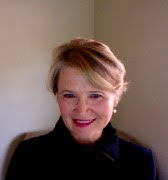Elizabeth L. Holloway, PhD is a Professor Emeritus in the Graduate School of Leadership & Change at Antioch University. She is a Fellow of the American Psychological Association and Diplomate of the American Board of Professional Psychology. She has over 35 years of experience as an educator, researcher, and consultant in clinical supervision, relational practice, and respectful cultures in higher education and healthcare organizations. Her most recent writings are in qualitative methodologies for inclusion and diversity research, relational practice in teaching and learning, and supervisory practice.
- University of Wisconsin, Madison, Wisconsin
PhD, Counseling and Guidance, Counseling Psychology 1979 - University of California, Santa Barbara, California
MA, Counseling 1975 - University of Waterloo, Kitchener, Ontario, Canada
Hon. BA, Psychology, 1971 - Cornell University, Ithaca, New York
Biochemistry, 1968-69 - Senior High School, Port Credit, Ontario, Canada
Hon. Diploma, 1968
Dr. Holloway has published 7 books and approximately 75 papers. Please see her CV for a full list.
Holloway, E. L. (2016). Supervision Essentials for a Systems Approach to Supervision. Washington, D.C.: American Psychological Association.
Holloway, E. L. & Schwartz, H. L. (in press). Drawing from the margins: Grounded theory and EDI Studies. In Handbook of research methods on diversity management, equality and inclusion at work by R. Bendl, L. A. Booysen, J. Pringle (Eds).
Holloway, E.L. & Schwartz, H. L.(2014). Critical incident technique: Exploring meaningful interactions between students and professors . Sage Casebook on Methods
Holloway, E. L. (2014). Supervisory roles within systems of practice. In C. Watkins Jr. & D. L. Milne (Eds). The international handbook of clinical supervision , Wiley Blackwell: West Sussex, UK. pp. 598-621
Treadway, M. & Holloway, E. L. (2018). Young adults in transition: Factors that support and hinder growth and change. Journal of Therapeutic Schools and Programs, X(1), 14-65.
Schwartz, H. L. & Holloway, E. L. (2017). Assessing Graduate Student Work: An Emotional and Relational Perspective. Journal of Excellence in College Teaching, 28(2), 29-60.
Holloway, E. L. & Schwartz, H. L. (2014). Critical Incident Technique: Exploring meaningful interactions between students and professors. Sage Research Methods Cases . London, England: Sage, Ltd.
Kusy, M. E. & Holloway, E. L. (2014). A Field Guide to Real-Time Culture Change: Just “Rolling Out” a Training Program Won’t Cut It”, Journal of Medical Practice Management, Mar/Apr, 1-10.
Schwartz, H. L. & Holloway, E. L. (2014). “I become a part of the learning process”: Mentoring episodes and individualized attention in graduate education. Mentoring & Tutoring: Partnership in Learning.
Schwartz, H. L., & Holloway, E. L. (2012). Partners in learning: A grounded theory study of relational practice between master’s students and professors. Mentoring & Tutoring: Partnership in Learning, 20(1), 115–133.
Dr. Holloway has presented over 100 keynotes and workshops on disruptive behavior in organizations, qualitative methodology, and clinical supervision in Europe, Asia, United Kingdom, Australia, and Middle East. For a full list of her international and domestic work please see her CV.
- Chair, Fellows Committee, Society of Counseling Psychology, American Psychological Association (2020-2021)
- Academic Leadership Fellow (1998-1999). Appointed by the Provost to the Fellowship Program for the Committee on Institutional Cooperation representing the University of Wisconsin-Madison.
- Vilas Associate (1998-2000). Recognition of outstanding scholars in mid-career at the University of Wisconsin-Madison.
- International Award for Literary Excellence, Literi Club, University Press, England.
- Research Award, Division E, American Educational Research Association, 1991
- Research Scholar, American Association of Counseling and Development, 1986-87
- Wray Strowig Memorial Award for academic excellence, excellence in practice, and professional integrity and promise, University of Wisconsin, Madison, 1979.
- University-wide Teaching Award Nomination, Department of Counseling and Guidance and Women Studies Program, University of Wisconsin-Madison, 1978.
- University of Wisconsin-Madison Out-of-State Tuition Scholarship, 1975-1976.
- Rockefeller Foundation Scholarship in Biochemistry, Cornell University, 1968.
- Grounded theory methodology
- Situational analysis
- Case Study design
- Mixed methods
- Critical Incident Technique
- Narrative Inquiry
- Relational practice in teaching and learning

